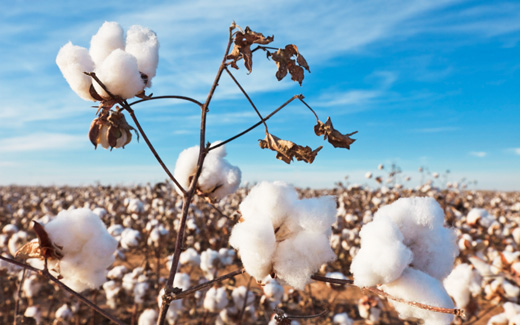
Untarnished Commodities
Migros expects its business partners to apply equally strict and green standards as it does itself. For this reason, in 2010, Migros worked with various task forces to improve global production conditions.
As a major importer of foods, Migros has double responsibility: on the one hand, it wishes to offer its customers safe and sustainably manufactured products. On the other hand, it is also responsible towards people and the environment in those countries from which it procures its goods. International standards are a means of ensuring that partner companies operate on a green and correct basis. In addition, the retailer participates in task forces in a targeted manner to ensure better production in sensitive areas.
Responsible soy production
Soy is a key commodity for the production of feed for farm animals. Soy production has doubled over the past 20 years due to rising meat consumption. This has resulted in environmental and social problems; for instance, the destruction of the rainforest and savannah areas. To combat this, Migros announced in July 2010 that it was establishing a Swiss network for sustainable soy in cooperation with other affected organisations and businesses, such as feed importers, farmers association, IP-Suisse and the WWF. Jointly, its members aim to increase the proportion of sustainable soy that is not genetically modified in farm animal feed in Switzerland from approx. 50 per cent today to 90 per cent by 2014. At a global level, Migros has been committed as a member of the Round Table on Responsible Soy Association since June 2010. This international association of distributors, producers and environmental organisations promotes the sustainable production of soy globally.
Sustainable palm oil
When cultivating oil palms, rainforests are often destroyed and the rights of the local population violated. To stop ruthless exploitation, the WWF, Migros and other organisations established the Round Table on Sustainable Palm Oil RSPO in 2003. Associated producers must fulfil certain principles and criteria for their plantations to be certified. By purchasing certificates, Migros has supported the production of sustainable palm oil since 2008 and requires all suppliers to use only RSPO-certified palm oil for the making of Migros products by the end of 2015 at the latest. Some 70 per cent of the products affected already meet this requirement. As part of its membership of the RSPO, Migros attended the eighth round table in Jakarta in November 2010. At this event, the retailer was able to express its concerns and expectations for the RSPO. At the same time, Migros confirmed its active cooperation both in the RSPO and in the palm oil task force of European retailers.
Better cotton
In 2009 Migros established the Better Cotton Initiative (BCI) together with other companies and the WWF. This association aims to optimise traditional cotton cultivation over the long term in addition to organic agriculture. As a member, Migros has committed itself to promoting the procurement of sustainable cotton and thereby facilitating market access for producers. In 2010 producers in Brazil, India, Pakistan and West and Central Africa harvested cotton in accordance with BCI principles. Last year Migros also joined the Supply Chain task force. As such, it is actively committed together with other members to efficiently getting the «better cotton» into the processing chain. An expansion of the BCI to China and Central Asia is planned. By the end of 2012, 1.3 per cent of global cotton production will meet the criteria of the Better Cotton Initiative.
Full transparency
Many consumers want to know where their foods come from – in particular, when it comes to sensitive products such as eggs, coffee or cocoa. Migros allows all customers to trace the origin of these products on the internet. A code is printed on all eggs from Swiss egg producers. When this code is entered into the www.migros.ch/eier website, information is displayed on where the egg comes from and how the producer keeps its hens. For imported eggs, their origin can be mainly established using the www.was-steht-auf-dem-ei.de website. Migros also offers complete transparency for coffee. The traceability of the products via the internet is also an aspect of Utz Certified, with which Migros's entire basic coffee range has been certified since the end of 2010. As regards cocoa, the retailer's target is to switch 30 per cent of the cocoa volume to UTZ-certified beans by the end of 2011. This share is to rise to more than 50 per cent by the end of 2013.